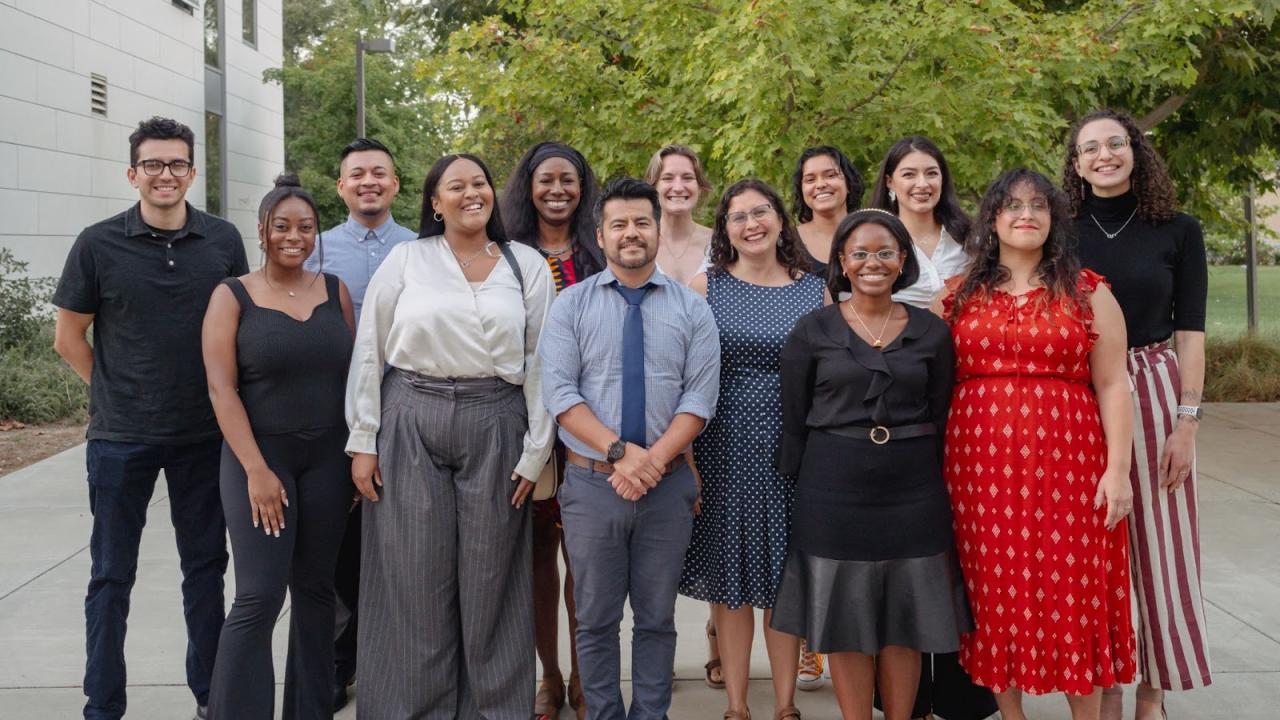
Environmental Justice Research from Communities on the Ground
EJ Leaders Event Recap
Community Engaged Research with Environmental Justice Leaders | October 5, 2023
Environmental justice communities across the country are fighting for their right to a safe, healthy, and liveable environment. Their efforts are far too often ignored by governments meant to protect their residents, with many of these communities facing an uphill battle in their fight for a better future.
There is unmet potential in connecting academics with these communities. Researchers here at UC Davis and across the U.S. frequently don’t work directly with community members and organizations. Given the resources and powerful knowledge generated by researchers at UC Davis, it is imperative that we address this disconnect between researchers and communities that could benefit most from their work.
Over the past year, the Feminist Research Institute (FRI), in collaboration with the Institute of Transportation Studies (ITS) and the Energy Efficiency Institute (EEI), has supported eight leaders from across the nation who are working in environmental justice. The program puts them in dialogue and collaboration with the UC Davis research community.
On October 5th, faculty and research communities at UC Davis came together to celebrate the closing of the 2023 Environmental Justice (EJ) Leaders program. Students, faculty, family members, and government officials witnessed presentations of each of the EJ leaders' research, accomplishments, and the tangible impact this work has had on their communities.
Juan C Garcia Sanchez, Sarah McCullough, and Selika Talbott, photo by Michael Fortunato
The programmatic founders and leaders, including Juan Carlos Garcia Sanchez, Sarah Rebolloso McCullough, and Selika Josiah Talbott, presented the Environmental Justice Leaders after months of behind the scenes collaboration and planning.
Ciara Thrower, photo by photo by Michael Fortunato
Ciara Thrower presented on the importance of community-engaged policymaking for environmental justice communities. Her research focused on the shortcomings of legislation, specifically SB1383, in aiding communities who are tasked with local implementation. Ciara’s work speaks to the importance of bringing research professionals, policymakers, and community residents in dialogue about how best to implement solutions on environmental issues.
Alec Castellano, photo by Michael Fortunato
Alec Castellano spoke of his work in the San Joaquin Valley. His project provides free air monitoring devices to community members and local businesses in neighborhoods where air quality continues to be a major concern. His community and government environmental agencies lack mutual trust and collaboration on the issue of air pollution. The community is collecting their own data, an important practice for the growth of community autonomy and mutually respectful collaboration.
Atenas Mena, photo by Michael Fortunato
Before Atenas Mena approached the stage, the room was filled with the sounds of emergency sirens blaring, a train crashing, phones ringing, and a 911 dispatcher speaking to a resident in a community where a train had just derailed. “Are you ready to take that call?” Atenas asked the crowd after the sounds dissipated. Her home, Kansas City, is the site of one of the largest rail yards in the country. She argued that it is not a matter of if, but when, a derailment will occur. She urges all communities living near rail to be ready. Atenas spoke to the lack of regulatory oversight and the need for collaborative, community-centered solutions.
Diamond Spratling, photo by Michael Fortunato
In conversation with Selika Josiah Talbott, Diamond Spratling spoke of her experience as an environmental justice advocate in Atlanta, Georgia. After learning about a proposed utility rate hike, she organized Black and brown women in opposition to the rate hike and successfully defeated it. Her organization, Girl + Environment, advocates against the disproportionate energy burden borne by communities of color. Through the EJ Leaders program, she leveraged research on historical and current discriminatory practices in energy cost burden.
It is no wonder the EJ Leaders program participants cite this process as revolutionary. The powerful results of this program are only possible through the support of FRI, ITS, EEI, and the faculty and research communities at UC Davis. Watch for more examples of community engaged research as the program plans for another cohort and the return of alumni in 2024. We invite you to support our program that is working to better the future of environmental justice communities across the nation.
Environmental Justice Leaders Cohort of 2023, photo by Michael Fortunato
Iesha Baldwin and Selika Josiah Talbott, photo by Michael Fortunato